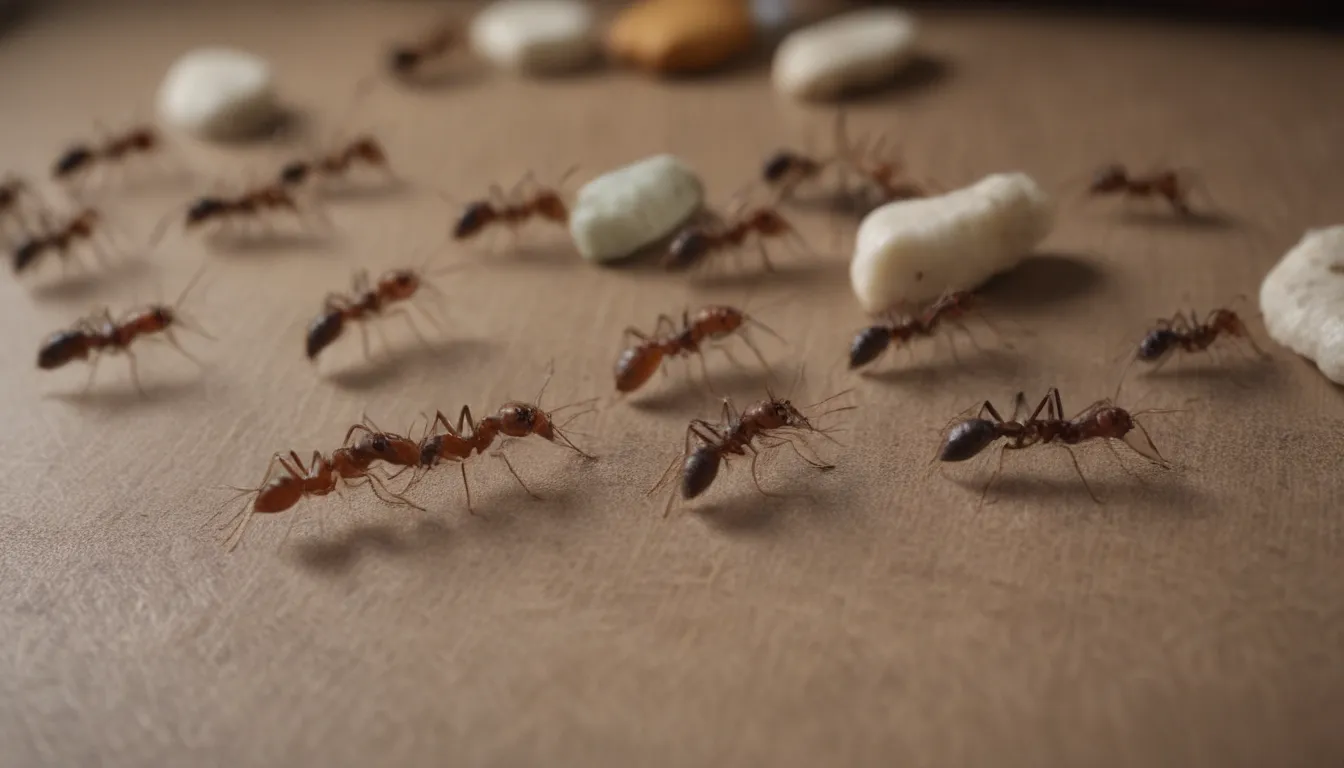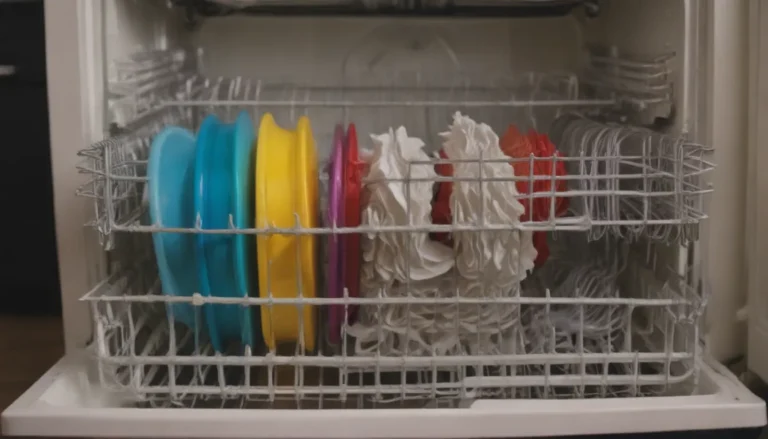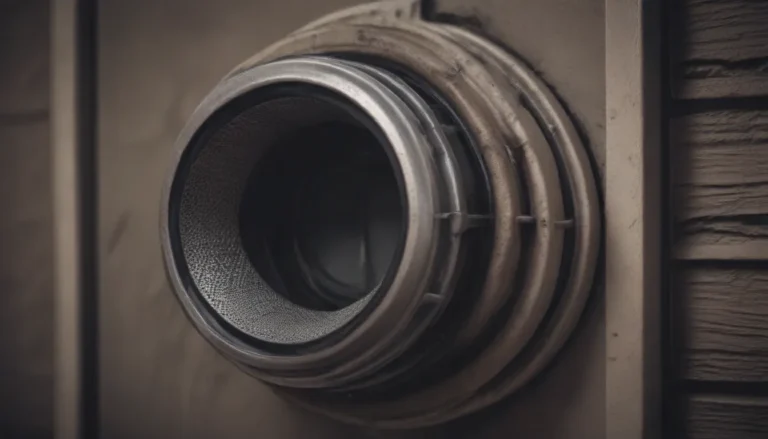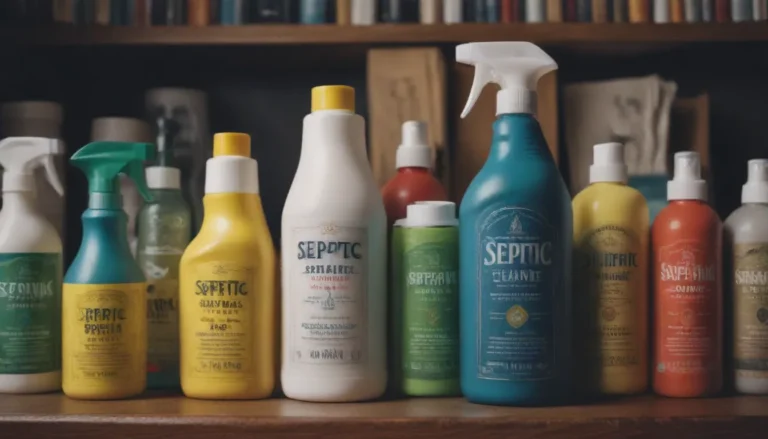How to Effectively Eliminate Ants from Your Kitchen: A Comprehensive Guide

Ants are pesky little creatures that always seem to find their way into our kitchens. These tiny intruders can enter through the smallest cracks, causing frustration for many homeowners. However, getting rid of ants doesn’t have to be a daunting task. With a bit of knowledge and some simple solutions, you can effectively eliminate ants from your kitchen and prevent them from coming back.
Understanding the Types of Ants Found in Your Kitchen
Before you can effectively tackle an ant infestation in your kitchen, it’s important to understand the different types of ants you may encounter. Here are some common types of ants found in kitchens:
- Pavement ants: These ants are typically small and dark brown in color. They are known for creating intricate trails and coming indoors in search of food.
- Odorous house ants: These ants emit a foul odor when crushed, hence their name. They are attracted to sugary foods and are often found foraging in kitchens.
- Carpenter ants: Unlike other ants that feed on food scraps, carpenter ants tunnel through wood, causing structural damage to homes.
Knowing which type of ants you’re dealing with can help you choose the most effective methods for getting rid of them.
Signs of an Ant Infestation
It’s essential to be able to recognize the signs of an ant infestation early on to prevent the problem from escalating. Here are some common indicators of an ant infestation in your kitchen:
- Trails of ants: If you notice a steady stream of ants coming and going from your home, it’s likely that there’s an ant colony nearby.
- Piles of dirt: Ants may leave behind piles of dirt or debris as they excavate tunnels in search of food.
- Audible noises: In some cases, you may hear rustling noises in your walls as ants move around.
- Structural damage: Carpenter ants can cause damage to wooden structures, leaving behind sawdust or crumbling wood.
If you notice any of these signs, it’s time to take action to eliminate the ant infestation in your kitchen.
Simple Solutions to Get Rid of Ants in Your Kitchen
Instead of resorting to harmful chemicals or professional help right away, try these natural and DIY solutions to get rid of ants in your kitchen:
1. Clean Thoroughly
Ants are attracted to food residue, so maintaining a clean kitchen is key to keeping them at bay. Make sure to:
- Wipe down countertops and surfaces regularly.
- Sweep and mop floors to remove crumbs and spills.
- Clean under and behind appliances where food particles may accumulate.
2. Store Food Properly
Prevent ants from accessing food sources by storing food in sealed containers. Additionally:
- Promptly clean up after meals and avoid leaving food out in the open.
- Seal pet food in airtight containers to prevent ants from getting to it.
3. Remove Moisture Sources
Ants are also drawn to water sources, so fix any leaks or drips in your kitchen. Be sure to:
- Dry up spills promptly to prevent ants from accessing water.
- Keep areas dry, including under sinks and around pet water bowls.
4. Use Natural Repellents
Detract ants from your kitchen by using natural repellents that they find unpleasant. Consider using:
- Peppermint oil: Ants dislike the strong scent of peppermint.
- Citrus: Lemon or orange peels can deter ants from entering your kitchen.
- Cinnamon: Sprinkle cinnamon powder along ant trails to discourage them.
- Coffee grounds: Ants are repelled by the scent of coffee.
- Cayenne pepper: A sprinkle of cayenne pepper can help keep ants away.
5. Seal Entry Points
Locate and seal any cracks or crevices that ants may be using to enter your home. Use caulk to:
- Close off entry points around windows, doors, and pipes.
- Inspect the exterior of your home for potential entryways and seal them off.
6. Target the Queen
To truly eliminate an ant infestation, you need to target the queen of the colony. Use bait solutions that ants will carry back to the nest, such as:
- Borax and sugar mixture: This homemade bait can be an effective way to kill the queen and the entire colony.
- Commercial ant baits: These products contain baits that ants will bring back to the nest, ultimately eradicating the colony.
By targeting the queen, you can disrupt the ant colony’s reproductive cycle and prevent future infestations.
When to Seek Professional Help
While DIY methods can be effective in many cases, there are times when it’s necessary to seek professional pest control services. Consider contacting a professional if:
- DIY methods have not been successful in eliminating the ant infestation.
- The infestation is widespread and difficult to control.
- You’re dealing with a particularly aggressive ant species, such as carpenter ants.
Integrated Pest Management (IPM) professionals have the expertise and tools to effectively eliminate ant infestations while minimizing environmental impact.
Final Thoughts
Dealing with an ant infestation in your kitchen can be a frustrating experience, but with the right knowledge and solutions, you can effectively get rid of ants and prevent them from returning. By following the simple steps outlined in this guide and taking proactive measures to keep your kitchen clean and sealed, you can enjoy an ant-free environment in your home. Remember, persistence is key when dealing with ants, so stay vigilant and address the issue promptly to prevent further infestations.
Remember, the key to preventing future ant problems is to maintain a clean and dry environment in your kitchen. By reducing food sources and blocking entry points, you can keep ants at bay and enjoy a pest-free kitchen.
Sources:
– “A Guide to House-Invading Ants and Their Control.” North Carolina State Extension.
– “Biology and Control of Carpenter Ants.” North Carolina State Extension.
– Chalissery JM, et al. “Ants Sense, and Follow, Trail Pheromones of Ant Community Members.” Insects, vol. 10, no. 11, 2019, pp. 383.
– Simothy L, et al. “A Study on the Potential of Ants to Act as Vectors of Foodborne Pathogens.” AIMS Microbiol, vol. 4, no. 2, 2018, pp. 319-333.
– Chen J, Oi DH. “Naturally Occurring Compounds/Materials as Alternatives to Synthetic Chemical Insecticides for Use in Fire Ant Management.” Insects, vol. 11, no. 11, 2020, pp. 758.
– “Integrated Pest Management (IPM).” National Pesticide Information Center.
– “Ants in the Home.” Colorado State University Extension.





